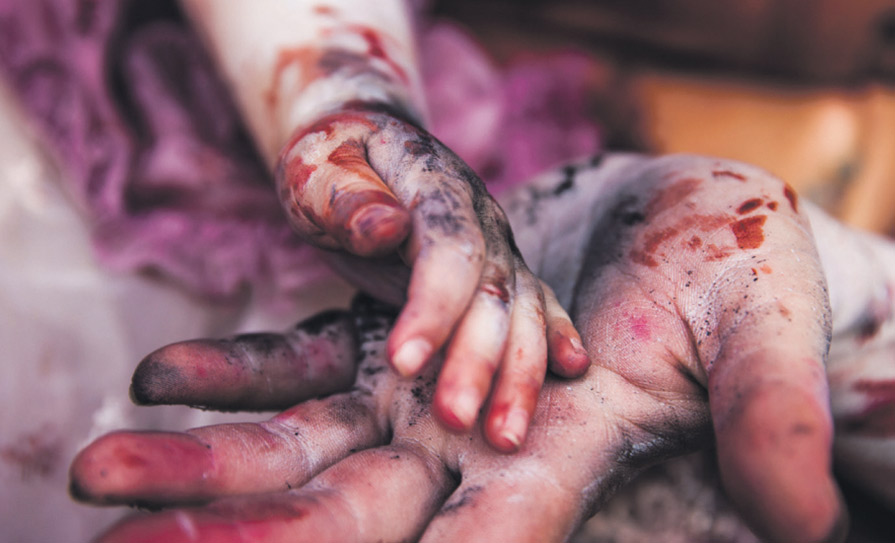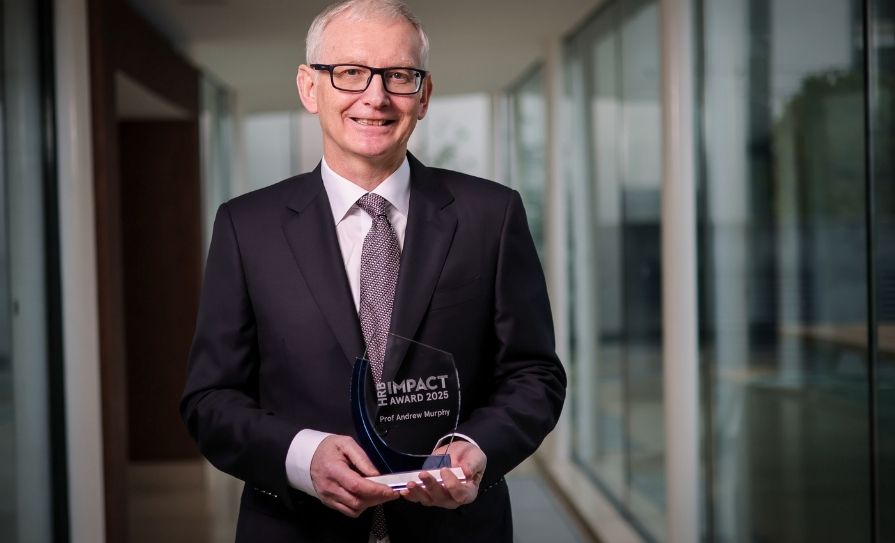Irish-based medical workers are raising money in response to the devastating health impact that the war in Gaza is having on children. David Lynch reports
A number of doctors and other medical workers based in Ireland have come together to establish the Gaza Paediatric Care Initiative (GPCI). The GPCI has “the single goal” of helping “all the children caught in the crossfire of the current conflict in Palestine”.
By 12 January, almost €130,000 had been raised on the GPCI GoFundMe page. The target is €250,000.
“The toll of what is happening in Gaza is horrendous,” one of the organisers, Prof Afif El-Khuffash, Consultant Neonatologist at the Rotunda Hospital, Dublin, and Clinical Professor of Paediatrics, RCSI, told the Medical Independent (MI).
Prof El-Khuffash outlined the devastating impact the current war in Gaza is having on medical facilities, especially for children.
“You have the physical toll, but you also have the psychological toll,” he said.
“There are a lot of children who have been orphaned, who have [been] subjected to this onslaught, and I really worry about the long-term impact that this will have on children in that environment. We know there is going to be a huge rise in cases of post-traumatic stress disorder and long-term disability,” he added.
“And also, it fosters an environment where you worry about it perpetuating further cycles of hate, which is something I am really concerned about.”
Prof El-Khuffash said that paediatric care in Gaza currently “is non-existent”. He added that the list of required supplies include basics, such as bandages, plasters, and intravenous fluids, to medical supplies for fractured bones and other injuries arising from bombings.
Personal
This crisis also has a personal dimension for Prof El-Khuffash.
He said the bloodshed has been “heartbreaking to witness…. It is really hard being so far across the globe and having that feeling of helplessness.”
“My father is from a small [Palestinian] village to the south of Nablus on the West Bank. He left to do medicine in Egypt, but could not return after the 1967 war, so he is a Palestinian refugee. I was born and grew up in Kuwait. Most of my family on my father’s side I never met, because they are on the West Bank.”
He highlighted that the international media is not currently focused on the “military incursions” and attacks on Palestinians in the West Bank by both the Israeli Defence Force and Israeli settlers.
The BBC reported on 11 January that, according to local sources, “more than 23,350 people have been killed in Gaza – mostly children and women” since the Israeli attack began in October. At least 1,300 people were killed in Israel following a Hamas-led attack on 7 October.
The Irish Government is among many states that have called for an immediate ceasefire.
GPCI
The current violence caused Prof El-Khuffash to join with colleagues to establish the GPCI.
“[The GPCI] is a group of physicians, mostly paediatricians, but also others that decided to get together to form a group, for a couple of tasks,” he told MI.
“The first one was to raise awareness of the suffering of children in Gaza and to highlight their plight. To also advocate for more recognition from medical institutions and medical societies to be a bit more vocal in advocating for the children in Gaza and to highlight their suffering as they are innocent bystanders in this ongoing war. And, finally, to fundraise so we can actually help organisations that are there on the ground to provide medical aid to the people of Gaza.”
The GPCI is fundraising on GoFundMe and has also partnered with Trócaire. The money raised is being deployed in the region through the charity Medical Aid for Palestinians (MAP).
“This [MAP] is a UK-based organisation that actually has people on the ground,” said Prof El-Khuffash.
“As we speak still (11 January), in the south of Gaza they can bring food and water, supplies, medical aid, and also personnel despite the ongoing war. So we are confident and happy that all the donations are going directly to people in Gaza on the ground and the organisation on the ground.”
He said that they have had “really, really good support from healthcare providers and other people, and we are really happy with the positive reaction we have had”.
“We have been overwhelmed by the response. We have reached half of our target so far, which is phenomenal.”
Medical organisations
In late December, World Health Organisation (WHO) Director-General Dr Tedros Adhanom Ghebreyesus called on the international community to take “urgent steps to alleviate the grave peril facing the population of Gaza and jeopardising the ability of humanitarian workers to help people with terrible injuries, acute hunger, and at severe risk of disease”.
In October, the Irish Nurses and Midwives Organisation and the Irish Association of Social Workers (IASW) issued statements condemning the violence against all civilians and urging access to immediate humanitarian aid. On 12 January, the IASW reiterated its call for an end to the indiscriminate killing of innocent civilians in Gaza, an immediate ceasefire, release of all hostages, and mobilisation of urgent access to humanitarian aid to those in need.
In a statement in November, the IMO expressed its “solidarity with doctors and all healthcare workers in Gaza”. The Organisation said it supported the efforts of the Irish Government in relation to “the seeking of the release of the hostages and a ceasefire in hostilities to protect innocent civilians”.
“As a medical organisation we abhor all forms of violence and conflict as a means of achieving political ends and call for a lasting meaningful, peaceful solution.”
Last month (6 December), Dr Eve Bruce, Chair of Médecins Sans Frontières Ireland, wrote that the “continued assault is inflicting an unprecedented rate of killing and injuries on the 2.2 million people of Gaza”. She noted that at that time the WHO had recorded 164 attacks on healthcare-related facilities in Gaza since 7 October.
“Attacks on hospitals and medical workers are attacks on humanity,” according to Dr Bruce. “There is no justification – legal or moral – for the violent strikes on civilians and hospitals that we have seen in Gaza. We demand that hospitals, medical centres, ambulances, and the patients and staff in them are respected by all parties to the conflict.”
Prof El-Khuffash and other members of GPCI believe there is a need for a stronger voice from some global medical bodies.
“I think there has been deafening silence from a lot of international medical bodies, especially paediatric ones,” he said.
Prof El-Khuffash noted that the European Society for Paediatric Research “which is a pan-European society that is tasked with the promotion of health in children was very vocal, and rightly so, during the [ongoing] Russian-Ukrainian conflict… but has been silent when it comes to Gaza”. He said there had also been inaction from “similar organisations in north America”.
“We are not asking people to take political sides. But we want people to advocate for children in Gaza who are clearly suffering the brunt of this brutal war.”
During these bleak times, Prof El-Khuffash believes the work and support for the GPCI is important.
“It is slow to get aid across [to Gaza] for logistical reasons, but it is happening.”
He said that “one of the biggest fears” is the estimated half a million people, the majority of whom are children, who are at risk of dying.
This is “not as a direct result from ongoing war now, but as a result of famine, lack of food, lack of water, and the spread of communicable diseases”.
*To donate to the Gaza Paediatric Care Initiative, visit www.gofundme.com/f/gaza-paediatric-care-initiative.













Leave a Reply
You must be logged in to post a comment.